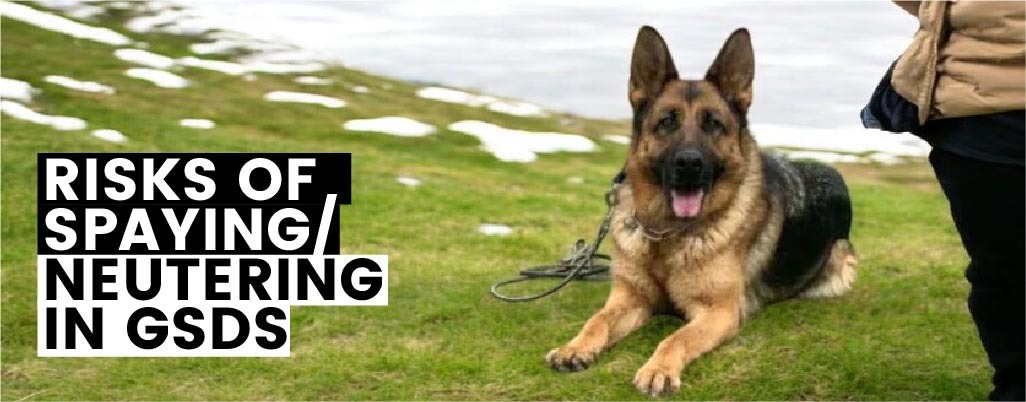
Spaying and neutering are common surgical procedures performed on pets to prevent reproduction. Spaying involves the removal of a female dog’s ovaries and uterus, while neutering is the removal of a male dog’s testicles. These procedures are often recommended by veterinarians as a responsible way to control the pet population and prevent unwanted litters.
Beyond population control, spaying and neutering offer several health and behavioral benefits.
For females, spaying reduces the risk of uterine infections and breast tumors, while neutering males can lower the chances of testicular cancer and certain prostate issues. Additionally, both procedures often lead to calmer, more manageable pets by reducing hormone-driven behaviors like marking territory or aggression. However, it’s important to understand that, like any surgical intervention, there are risks involved, and owners should consider these carefully before making a decision.
SUMMARY:
- Risks of spaying/neutering include short-term surgical complications and long-term health concerns.
- The long-term effects are hormonal imbalances, joint disorders, and increased risks of certain cancers.
- The alternative methods are hormone-sparing surgeries, which may reduce some risks.
- Take preventive measures for better outcomes, including proper timing, health checks, and post-surgical care.
Get a Personalized Training!
Prevent Behavioral Issues After Spay/Neuter – Book a Consultation!

Short-Term Risks of Spaying/Neutering in German Shepherd
We have listed all the immediate complications a German Shepherd can face, primarily related to the surgical process and recovery.
1. Anesthesia Complications
Anesthesia is crucial to any surgery, including spaying or neutering. German Shepherds, especially those with pre-existing health conditions, are sensitive to or adversely react to anesthesia.
These reactions can range from mild to severe and may include:
- After surgery, dogs may temporarily appear groggy or disoriented as the anesthesia wears off.
- Some dogs, particularly those with underlying respiratory or heart problems, may have difficulty breathing under anesthesia.
- Anesthesia can occasionally cause irregular heartbeats or, in rare cases, cardiac arrest despite close monitoring by veterinarians.
- Though rare, some dogs experience allergic reactions to anesthesia, including swelling, breathing difficulties, or anaphylaxis, requiring immediate treatment.
How To Prevent Anesthesia Complications?
To minimize anesthesia risks, your veterinarian may perform a pre-surgical evaluation, including blood work, to ensure your dog is healthy enough for surgery. Discussing your German Shepherd’s medical history, including any prior reactions to anesthesia, with the vet is essential to ensure a safe outcome.
2. Post-Surgical Infections
Infections are one of the most common short-term risks associated with spaying and neutering. Although veterinarians take great care to ensure the surgical site is sterile, there is still a possibility of infection developing at the incision site if post-surgical care isn’t properly managed.
A study highlights that surgical trauma and post-surgical complications in dogs are common.
Signs of infection include:
- Some redness and swelling around the incision site are normal during the first few days after surgery.
- A discharge of pus or an unpleasant smell from the incision site is a clear sign of infection and requires immediate veterinary attention.
- An infected wound develops a fever, becomes lethargic, or loses interest in food and activities. If your German Shepherd exhibits these symptoms, it’s important to contact the vet as soon as possible.
- Dogs try to lick or scratch their surgical wound, which can introduce bacteria and increase the risk of infection.
How To Prevent Post-Surgical Infections?
To prevent infections, it’s essential to follow your veterinarian’s post-surgery care instructions closely. This includes keeping the incision site clean and dry, monitoring for signs of infection, and restricting your dog’s activity to prevent strain on the wound.
In some cases, antibiotics may be prescribed to further reduce the risk of infection.
3. Bleeding and Swelling
While minor bleeding or swelling at the incision site is normal, excessive bleeding can be a sign of a more serious complication. Bleeding may occur if a blood vessel wasn’t properly sealed during surgery or if your German Shepherd is too active during the recovery period.
Common signs of excessive bleeding or swelling include:
- Small blood spots are normal, but large amounts of pooling require urgent vet care.
- Swelling from blood buildup may resolve itself, but larger hematomas may need draining by a vet.
You can also read this article: German Shepherds Commands in German with English Translation
How To Prevent Bleeding and Swelling?
Monitoring your German Shepherd for excessive bleeding and ensuring they remain calm during recovery can help prevent serious post-surgical issues. If bleeding persists or worsens, it’s essential to seek veterinary assistance immediately.
4. Delayed Healing
Some dogs, particularly older or less healthy German Shepherds, may experience delayed healing after surgery. A weakened immune system, poor nutrition, or an underlying health condition can cause this.
Delayed healing increases the risk of infections and can prolong recovery, making it essential to provide your dog with the best possible care. Ensure they have a comfortable resting space, a nutritious diet, and reduced activity levels to promote faster healing.
Long-Term Risks of Spaying/Neutering in German Shepherds
Long-term risks affect your German Shepherd’s health, physical development, and behavior.
1. Hormonal Imbalance and Weight Gain
When a dog is spayed or neutered, the body stops producing certain sex hormones like estrogen and testosterone. These hormones play a significant role in regulating various bodily functions, including metabolism and energy levels. The absence of sex hormones elevates luteinizing hormone (LH), potentially contributing to health complications.
Without them, your German Shepherd’s metabolism may slow, making them more prone to weight gain.
Obesity is a major concern in neutered and spayed dogs. The prevalence of obesity is higher in neutering shepherds found subcutaneously than in other parts of the body. German Shepherds are already susceptible to joint issues such as hip and elbow dysplasia, and extra weight strains their joints, increasing the likelihood of developing or exacerbating these problems.
How To Prevent Weight Gain?
Your German Shepherd requires fewer calories to maintain a healthy weight after spaying or neutering. Switching to a lower-calorie dog food or feeding smaller portions can help prevent weight gain.
Regular exercise is critical for maintaining your German Shepherd’s muscle mass and keeping their joints healthy. Daily walks, playtime, and mental stimulation to keep them fit and active.
2. Increased Risk of Joint Disorders
Joint disorder is an increasing risk associated with spaying and neutering, especially if done early. German Shepherds are predisposed to conditions such as hip and elbow dysplasia, which are influenced by genetics and physical development.
When a dog is neutered or spayed before fully matured, removing sex hormones can disrupt normal bone and joint development. These hormones help regulate the closure of growth plates, the areas of growing tissue near the ends of long bones. Without sufficient hormone levels, growth plates may remain open for extended periods, leading to abnormal bone growth and alignment.
For German Shepherds, early spaying or neutering is associated with:
- Hip Dysplasia is a genetic disorder that results in the malformation of the hip joint, causing pain, stiffness, and eventually arthritis. The risk of hip dysplasia increases when dogs are neutered or spayed before their bones fully develop.
- Neutered or spayed dogs have a higher risk of cruciate ligament tears, which lead to severe lameness and require expensive surgery to repair.
How To Prevent Increased Risk of Joint Disorders?
Delaying spaying or neutering until your German Shepherd has reached full physical maturity (around 18-24 months) can help reduce these risks, although it doesn’t eliminate them. This timing allows for normal bone development and reduces the chance of long-term joint problems.
3. Increased Cancer Risks
While spaying and neutering can reduce the risk of certain cancers, such as testicular cancer in males and mammary cancer in females, they can also increase the risk of other types of cancer.
German Shepherds neutered or spayed at an early age have been shown to have a higher incidence of certain cancers, including:
A study in The Veterinary Journal gives the host risk factor of cancer that neutering dogs before physical maturity increases the risk of developing osteosarcoma, a highly aggressive form of bone cancer.
Hemangiosarcoma is a cancer that affects the blood vessels, often leading to tumors in the spleen or heart. Neutered or spayed German Shepherds have a higher risk of developing hemangiosarcoma, which is often fatal.
Although the risk of some cancers decreases with spaying or neutering, it’s essential to consider the breed-specific cancer risks when deciding on the timing of the procedure.
4. Urinary Incontinence in Females
One of the more common long-term side effects of spaying female dogs is urinary incontinence. It is caused by weakening of the urinary sphincter muscles after removing estrogen, which helps regulate muscle tone.
A Publication in AK Journal suggests that spaying-related urinary incontinence was evaluated in dogs submitted to ovariectomy or ovariohysterectomy,
Spayed female dogs experience involuntary urine leakage, mainly when resting or sleeping. This condition can be embarrassing and difficult to manage, often requiring lifelong medication to control the symptoms.
While not all spayed females will develop urinary incontinence, the risk increases with early spaying. Delaying the procedure until after the first heat cycle may reduce the likelihood of this complication, although it’s not a guaranteed prevention.
Alternatives to Traditional Spay/Neuter Procedures
While traditional spaying and neutering have long been the standard for controlling pet reproduction, there are newer, less invasive alternatives that can help mitigate some of the associated risks. These options focus on preserving the pet’s overall health, particularly for larger breeds like German Shepherds, which may be more sensitive to early hormone removal.
One alternative is ovary-sparing spay for females, which removes the uterus while leaving one or both ovaries intact. This option allows the dog to retain the hormonal benefits that are lost during a full spay, such as reduced risks of obesity, urinary incontinence, and certain types of cancer.
Similarly, for males, a vasectomy can be performed, which only severs the vas deferens, preventing reproduction without affecting hormone production. This approach preserves the dog’s natural hormone levels, reducing the chances of hormonal imbalances that can impact behavior and long-term health.
Another option is hormone-sparing sterilization, which is increasingly being considered for pets. This method maintains a dog’s reproductive hormones, promoting healthy growth and preventing some of the negative health effects linked to traditional spay and neuter surgeries. These alternatives allow pet owners to manage reproduction while ensuring their pets continue to receive the benefits of essential hormones.
Consulting with a veterinarian about these alternatives is crucial, as they can help determine the best approach based on your pet’s breed, health, and lifestyle.
Things To Consider While Spay/Neuter GSDs
To minimize the risks of spaying or neutering your German Shepherd, follow these preventive measures:
- Consult your vet about the best time to perform the surgery, typically after your dog has matured.
- Do a pre-surgical health check to ensure that your dog undergoes a thorough examination, including blood tests, to detect any underlying health issues before surgery.
- Maintain your German Shepherd’s healthy weight through a balanced diet and regular exercise, especially post-surgery, to prevent obesity-related risks.
- Keep your dog calm and restrict activity after surgery to avoid complications like incision reopening or hematoma formation.
- Consider alternatives, such as partial sterilization or hormone-sparing procedures, which may help reduce some long-term risks like joint issues.
- Schedule regular post-operative check-ups to ensure your dog is healing well and avoid potential long-term complications.
The Bottom Line
Now, it’s essential to consult with your veterinarian to determine the best course of action for your German Shepherd. In some cases, alternatives like hormone-sparing surgeries may be worth discussing with your vet.
Consider your dog’s age, health status, and lifestyle when making this important decision. Follow preventive measures to mitigate risks and ensure your dog remains healthy and happy after surgery.





